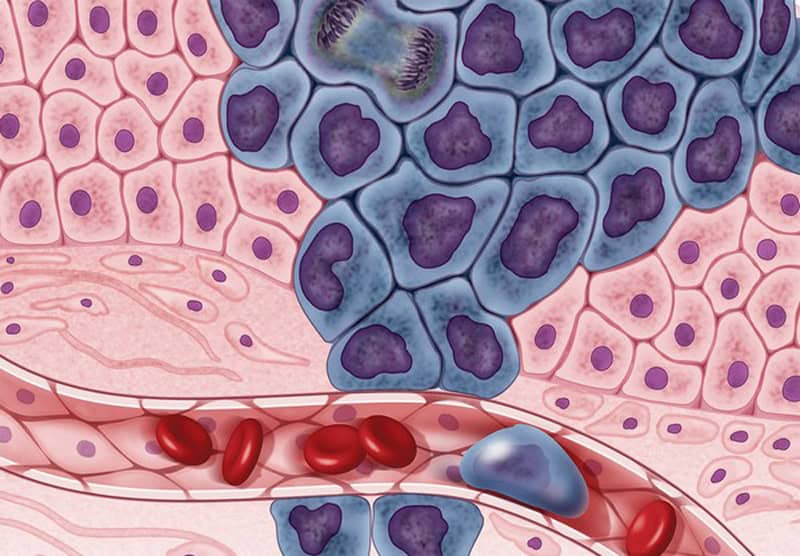Washington : In a recent study it has been found that cell therapies is one of the first steps in developing personalised treatments for cancer in people.
The study was discussed in the meeting the American Association of Cancer Research (AACR).
In the study, the researchers were able to characterise and identify the neoantigens driving the antitumor responses in a patient treated with an anti-PD-1 blockade and isolate the T cell receptors responsible for such effect.
Using immune checkpoint inhibitors to treat people with metastatic melanoma has helped transform the way people with the most deadly skin cancer are treated. Despite its success, there are still many people who do not benefit from the treatment.
Up until now, adoptive cell therapy, which involves extracting and harvesting T cells from a patient and engineering them in the laboratory, have targeted shared antigens. That restricts many of the people that can potentially be treated with the therapy because not every cancer has the same antigen that needs to be targeted. Researchers are working to improve methods to identify new targets for these therapies in hopes to develop more effective and personalized therapies.
Researchers conducted the study using samples collected before and during treatment, the team isolated the T cells specifically recognizing the mutations on the tumour by using the imPACT Isolation Technology developed by PACT Pharma. The technology allows researchers to identify the T cells, and their T cell receptors, that have the ability to detect mutations. After identifying the T cell receptors, they were re-introduced in T cells from peripheral blood using a non-viral genome engineering method to generate new neoantigen-specific T cells that were used to kill melanoma cells from the same patient.
Cristina Puig-Sau, lead author of the study said, “In the setting of patients treated with anti-PD-1, we identified for the first time, in a high-throughput manner, which neoantigen mutations in the tumour are being targeted by T cells. More importantly, we were able to identify their T cell receptors and demonstrate that they can actually specifically kill the tumour cells.”
“We hope that a better understanding of the T cell responses that occur after immune checkpoint blockade will guide the design of personalized adoptive T cell therapies.”

